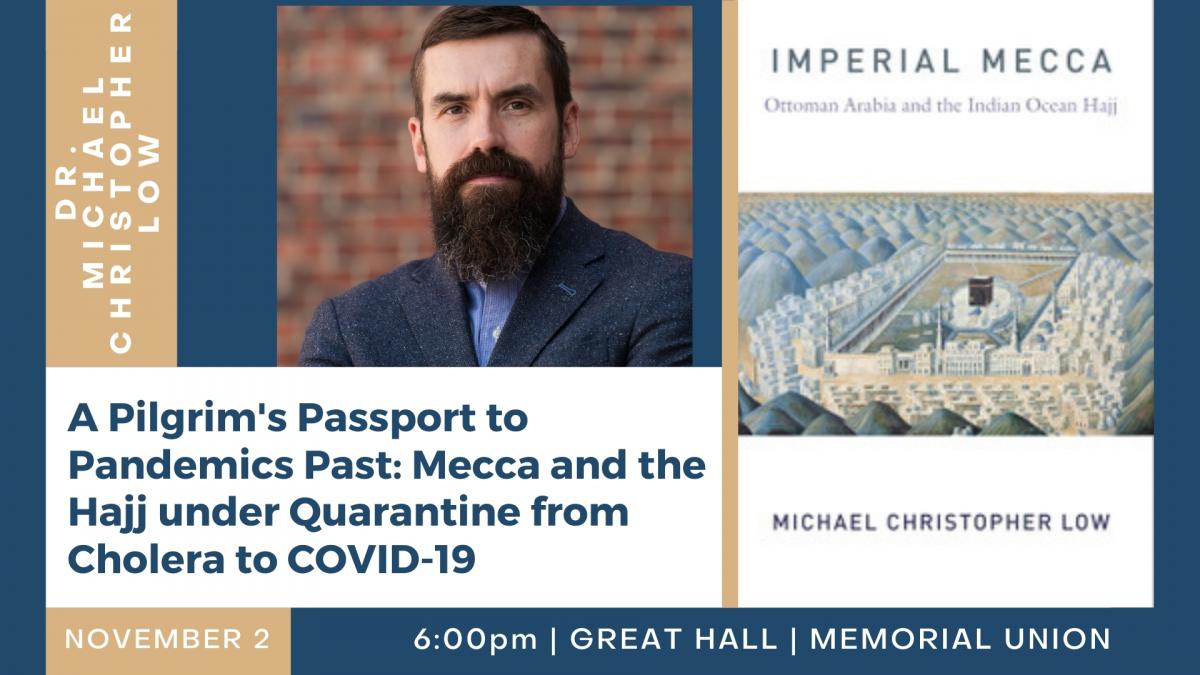A Pilgrim's Passport to Pandemics Past: Mecca and the Hajj under Quarantine from Cholera to COVID-19
- Department of History
- Committee on Lectures (funded by Student Government)

Recording Link: https://iastate.hosted.panopto.com/Panopto/Pages/Viewer.aspx?id=a3ccd087-42c7-415c-bfd7-adc001216b37
Between 1831 and 1914, cholera spread from India to Mecca and the Ottoman Hijaz on at least forty separate occasions. This talk traces the development of Ottoman and international quarantine and public health controls in the Hijaz, Red Sea, and Persian Gulf between 1865 and World War I. Pandemic cholera and the inter-imperial public health and travel regulations that its reign of terror spawned were foundational to the creation of the modern system of mass pilgrimage that we know today.
In light of our current global crisis with the novel coronavirus (COVID-19) pandemic and its role in Saudi Arabia’s difficult decision to dramatically restrict hajj, umrah, and tourism travel in 2020 and 2021, the relevance of Mecca’s pandemic past raises urgent new questions for understanding the present and future of pilgrimage management and even wider questions of mass mobility, tourism, travel restrictions, and border management.
Michael Christopher Low received his PhD in International and Global History from Columbia University in 2015. Low is an Assistant Professor of History at Iowa State University. He also serves as Co-Director of ISU’s Middle Eastern Studies Minor. In 2020-2021, he was a Senior Humanities Research Fellow for the Study of the Arab World at NYU Abu Dhabi. He is the author of Imperial Mecca: Ottoman Arabia and the Indian Ocean Hajj (Columbia University Press, 2020) and co-editor of The Subjects of Ottoman International Law (Indiana University Press, 2020). He also sits on the editorial boards of the Journal of Global History and the Journal of Tourism History.